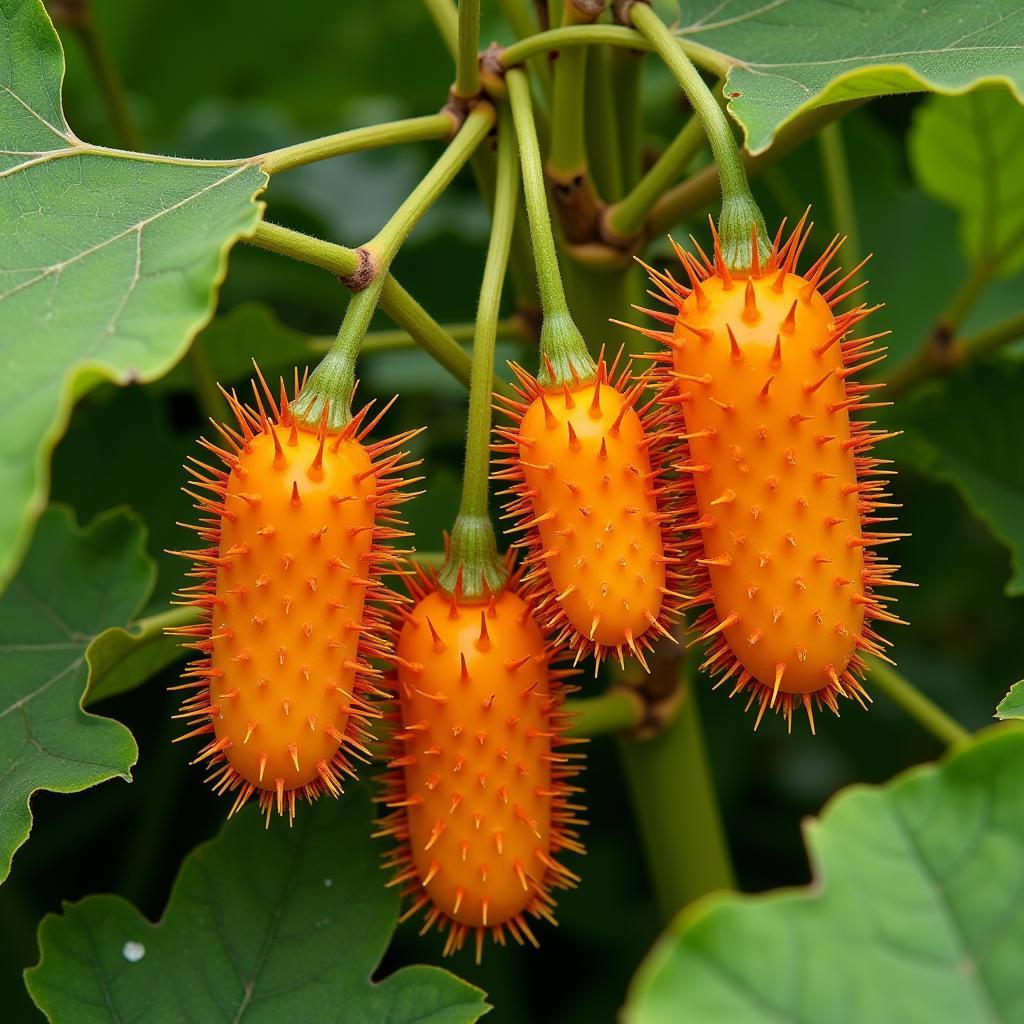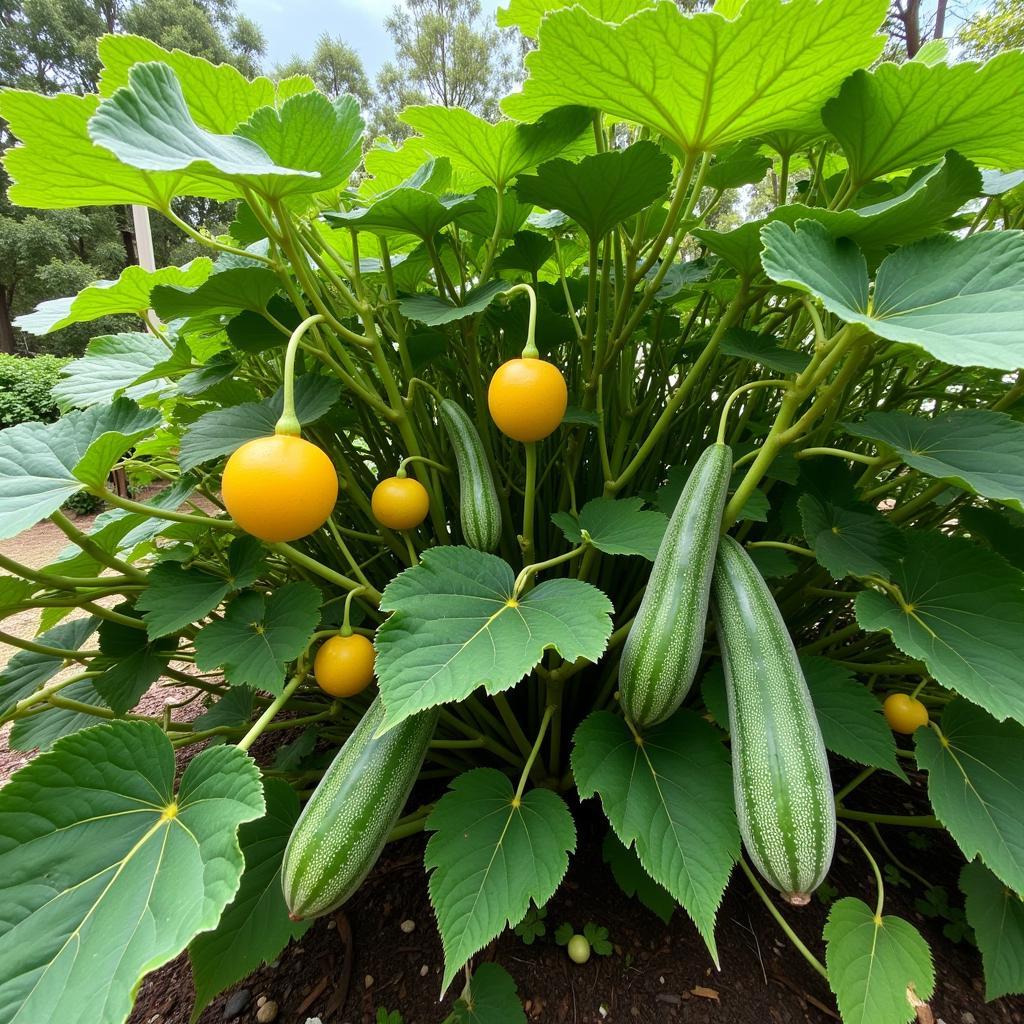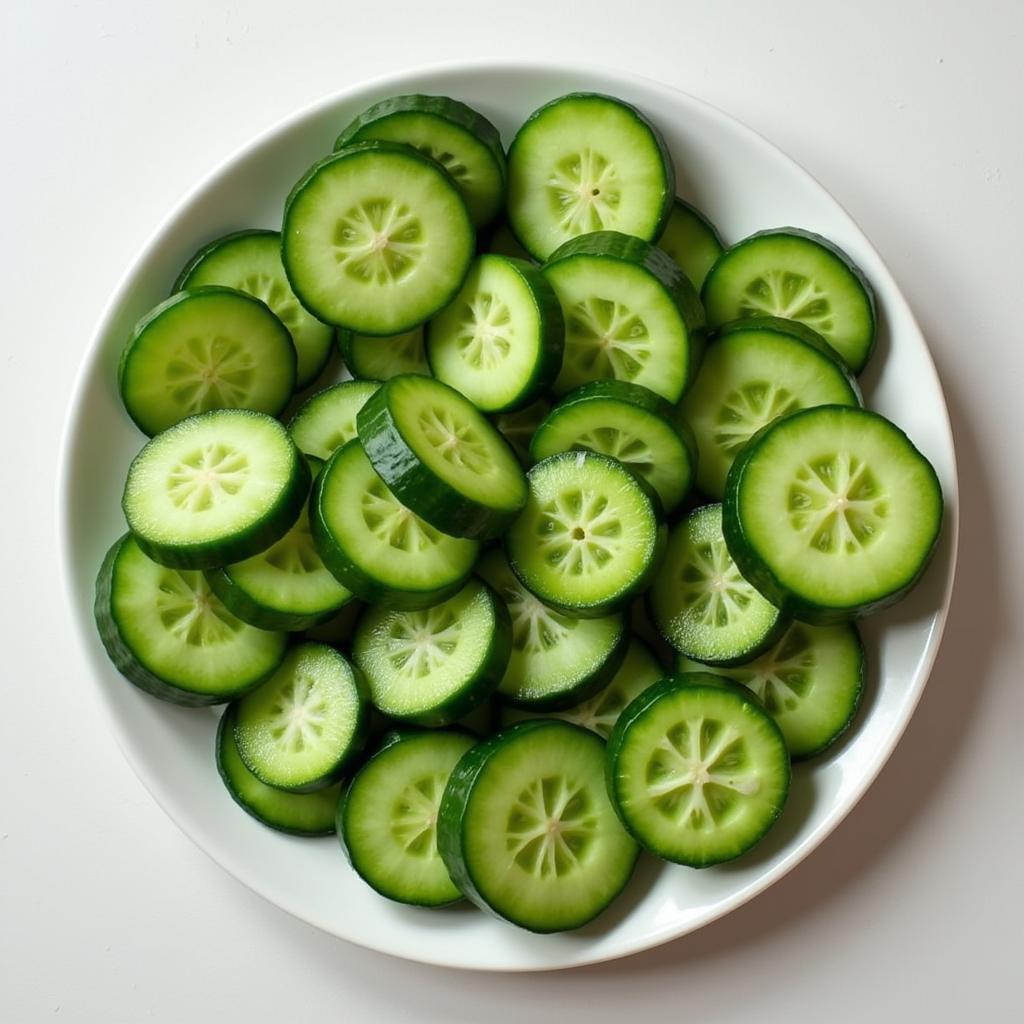African Horned Cucumber in Australia: A Comprehensive Guide
The African horned cucumber, also known as kiwano or melano, is an exotic fruit originally from Africa that has been gaining popularity in Australia. This unique fruit, with its spiky orange rind and jelly-like green flesh, is not only visually striking but also boasts a refreshing taste and impressive nutritional profile. This comprehensive guide will delve into everything you need to know about the African horned cucumber, from its origins and cultivation to its culinary uses and health benefits.
A Taste of Africa Down Under: Origin and History of the African Horned Cucumber
 African Horned Cucumber Growing on Vine
African Horned Cucumber Growing on Vine
The African horned cucumber (Cucumis metuliferus) originates from the semi-arid regions of southern Africa. For centuries, it has been a staple food source for indigenous communities, who value it for its ability to thrive in harsh conditions. The fruit’s ability to store water for extended periods made it a crucial survival food during times of drought. European explorers encountered the fruit in the 19th century and introduced it to other parts of the world, including Australia.
Cultivating the Exotic: Growing African Horned Cucumbers in Australia
 African Horned Cucumber Plant in Australian Garden
African Horned Cucumber Plant in Australian Garden
African horned cucumbers are relatively easy to grow in Australia’s climate, particularly in regions with warm temperatures and plenty of sunshine. These resilient plants thrive in well-drained soil and are tolerant to drought conditions. However, they prefer a slightly acidic soil pH and benefit from regular watering during the fruiting season.
The plant is a climbing vine and requires support structures like trellises or fences to climb. Growing African horned cucumbers in a controlled environment, such as a greenhouse, can help protect them from extreme weather conditions and extend their growing season.
A Feast for the Senses: Appearance, Taste, and Culinary Uses
 African Horned Cucumber Slices on Platter
African Horned Cucumber Slices on Platter
The African horned cucumber is a feast for the senses. Its bright orange rind, covered in small spikes, makes it a striking addition to any fruit basket. The inside reveals a vibrant green, jelly-like flesh filled with numerous pale seeds. The taste is often described as a refreshing blend of cucumber, kiwi, and banana. Some even detect hints of lime.
The versatility of the African horned cucumber shines in the kitchen. Its mild, slightly tart flavor lends itself well to both sweet and savory dishes. It can be eaten fresh, added to salads, or used as a unique garnish. The fruit’s refreshing taste makes it ideal for smoothies, juices, and even sorbets.
Beyond the Plate: Nutritional Value and Health Benefits
The African horned cucumber is not just a pretty face; it is packed with essential nutrients. It is a good source of vitamins C and K, as well as dietary fiber.
“Many people overlook the African horned cucumber, but it’s a nutritional powerhouse,” says dietician Sarah Jones. “Its high vitamin C content makes it excellent for boosting immunity, while the fiber content aids digestion. It’s a low-calorie fruit, making it a healthy snack option.”
FAQs about African Horned Cucumbers in Australia
Q: When is the best time to plant African horned cucumbers in Australia?
A: The ideal time to plant is after the last frost, typically in spring.
Q: How long does it take for African horned cucumbers to mature?
A: It takes approximately 70 to 80 days from planting for the fruits to mature.
Q: How can I tell if an African horned cucumber is ripe?
A: A ripe cucumber will have a vibrant orange rind and will come off the vine easily.
Q: Can I eat the rind of an African horned cucumber?
A: While the rind is edible, it can be quite tough and bitter. Most people prefer to eat the inner flesh and seeds.
Q: How should I store African horned cucumbers?
A: Store them at room temperature for up to a week, or in the refrigerator for extended shelf life.
The African horned cucumber, with its intriguing appearance and refreshing taste, offers a unique culinary experience. Its ease of cultivation and impressive nutritional profile make it a valuable addition to any Australian garden. So why not embark on a culinary adventure and explore the versatility of this fascinating fruit?


